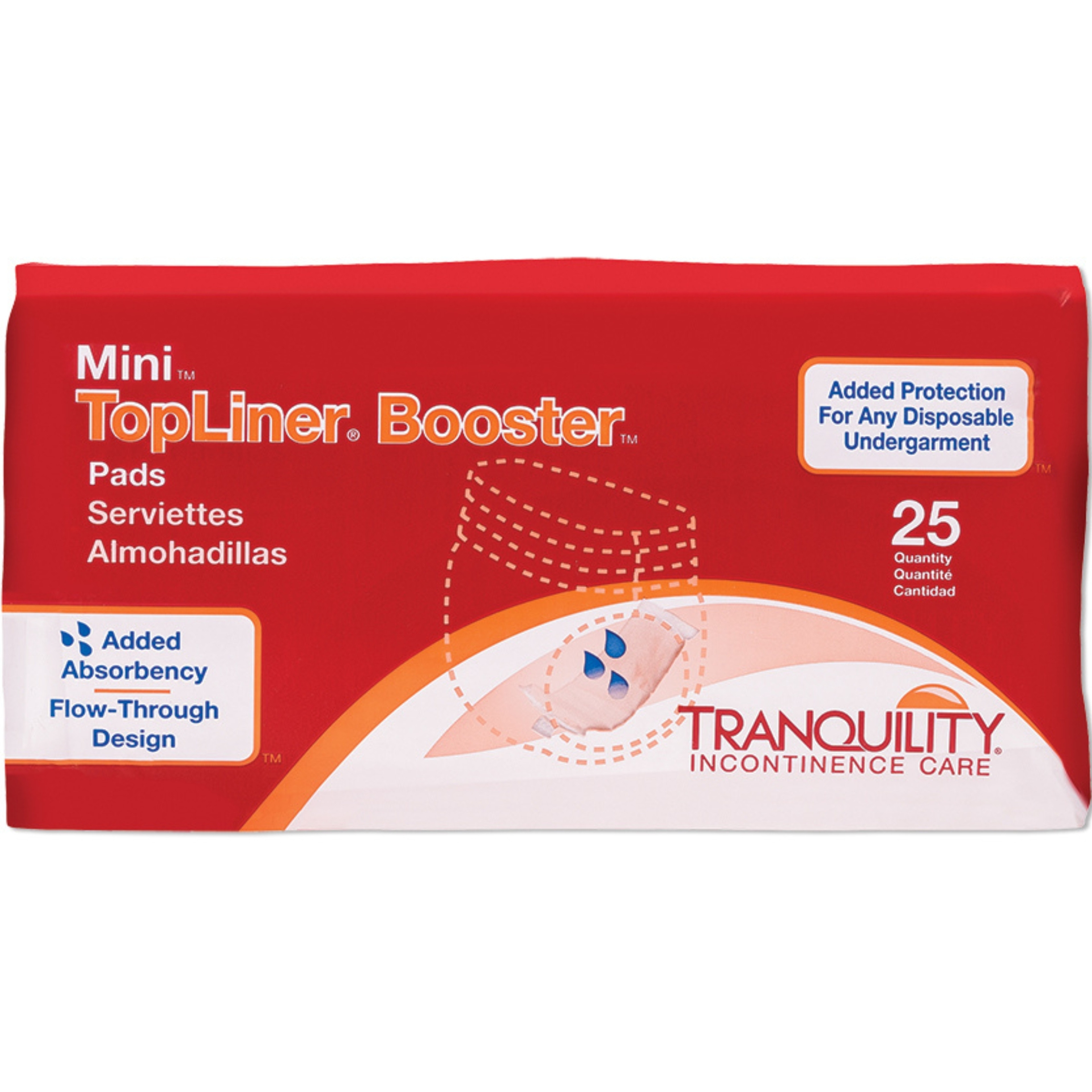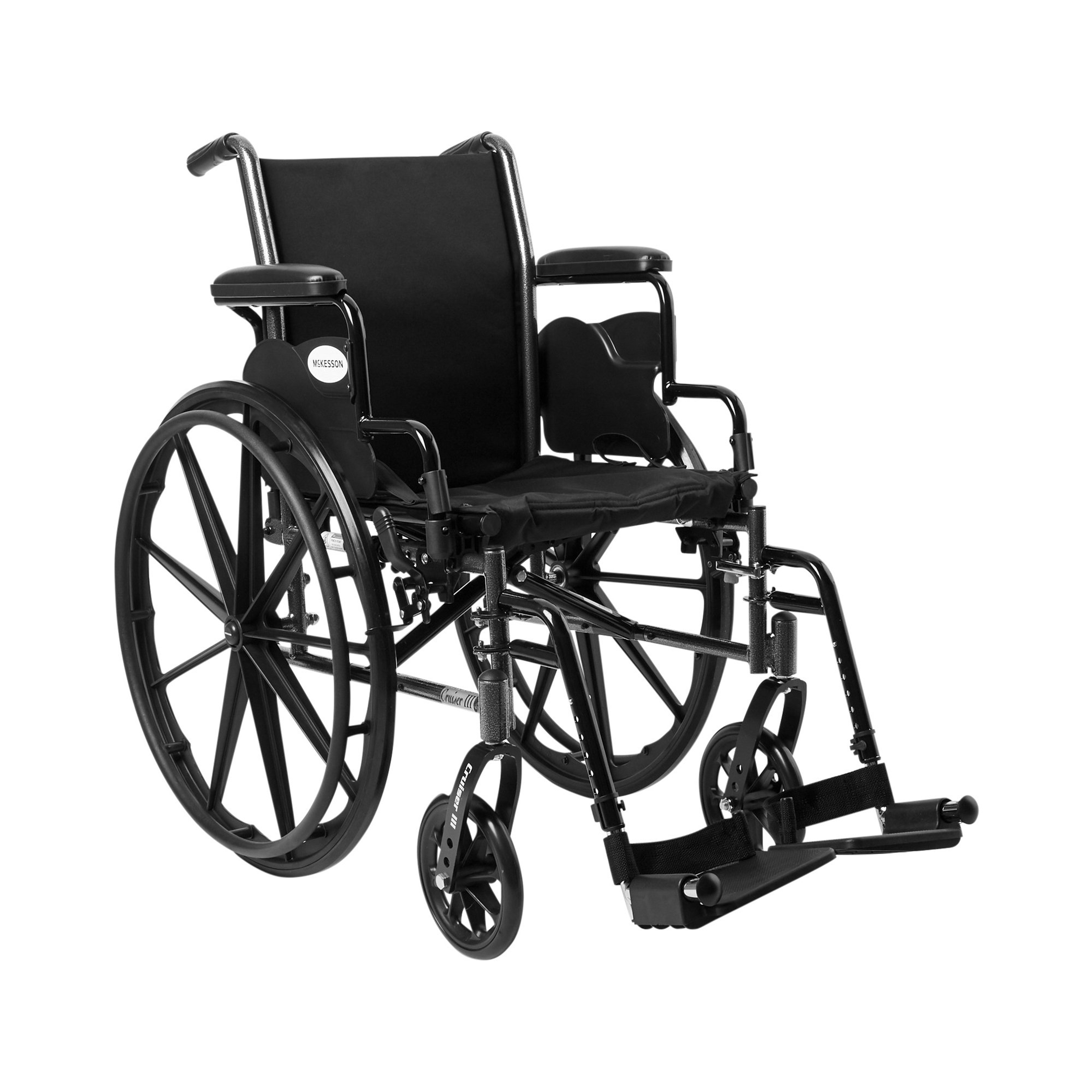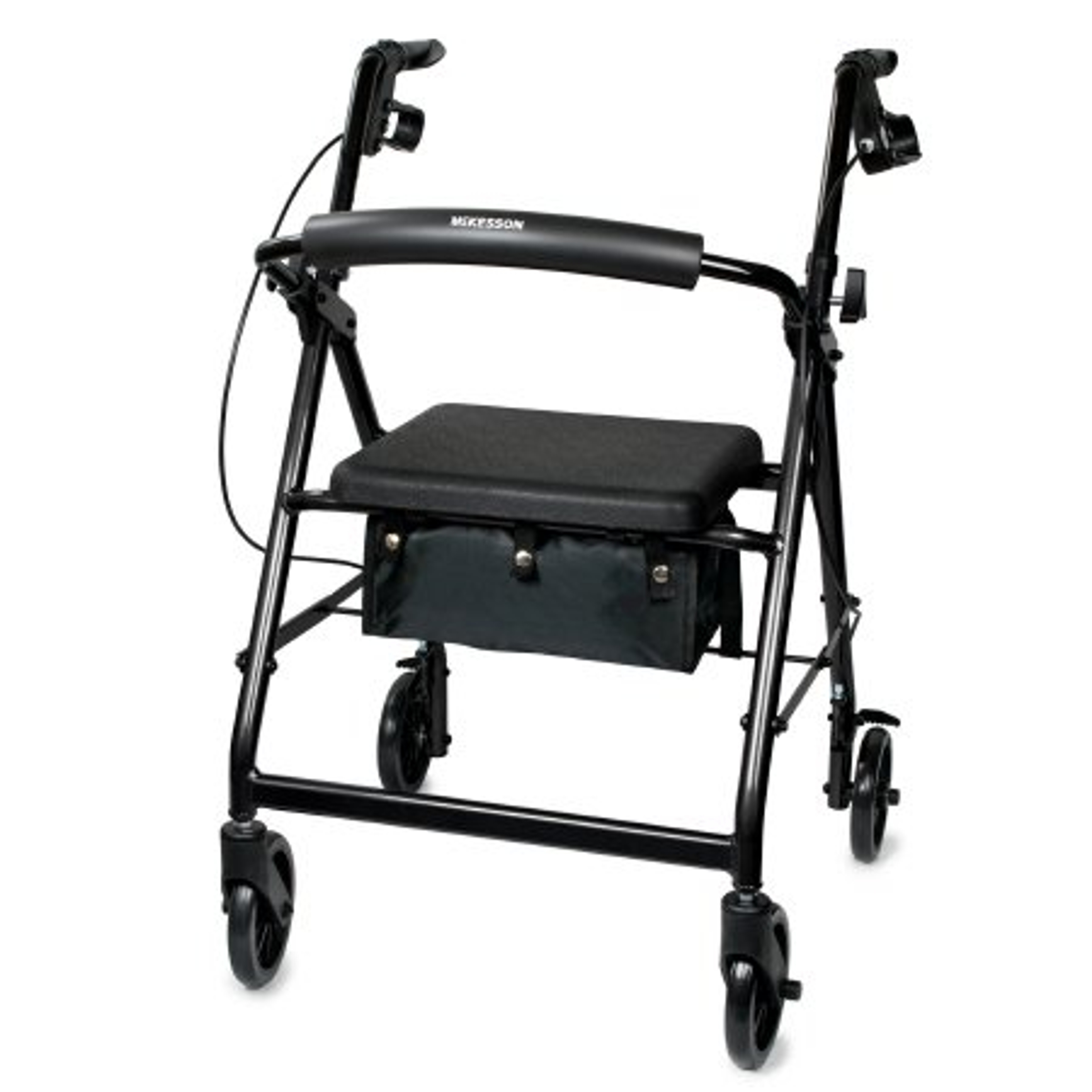When you’re caring for a loved one with a specialized need, planning ahead can ensure a safe and comfortable experience both for you and for the person you’re caring for. Whether you’re flying across the country to stay with family over the holidays, or just have a long drive, we’ve put together some of the best caregiver tips to ensure smooth travel.
How Should I Prepare for my Trip?
Before traveling or shopping for travel products:
Be sure you fully understand any unique or specialized needs. In certain cases, and for loved ones with specific conditions, it may be helpful to speak with their doctor about your holiday travel plans and ensure they’re OK to travel, and that you’ll have everything you need
Depending on how far you’re traveling or the extent of you or your loved one’s condition, you may want to check that your destination has both a pharmacy and a hospital or urgent care you and your family trust
Build a traveler’s health kit
Ensure wherever you’ll be staying is accessible and tailored to your loved one’s needs
Bake in an additional day for rest. Traveling can be hard on those you’re caring for, so if you can add a day to ensure both you and the person you’re caring for can rest, do it!
Traveling with Incontinence
For those dealing with incontinence, including anything from bladder urgency issues to more severe concerns, a long trip can feel intimidating. With the right products and practices, you or your loved ones can stay safe, dry, and comfortable even on long-trips.
Tip 1: Add a booster pad for additional absorbency and easier changes
Booster pads add an extra layer of absorbency and stretch the length of your incontinence products, meaning that no matter if you’re driving or flying, you’re less likely to experience leaks.
They also make changes simpler - rather than changing your entire product, you can just swap out the booster pads themselves, making things much easier when you or your loved one are trying to use that tiny airplane restroom!
Hear it from a caregiver: Traci W. says, “These booster pads are a lifesaver!! No leaks when I use these in addition to any regular incontinence underwear.”
Tip 2: Use a Pant Liner or Belted Pad Instead of a Pull-Up or Brief
Customers who typically wear a brief or pull-up may want to switch to a pant liner or a belted pad instead. A pant liner will be as large as a brief, but without the two side panels. A belted pad is similar, but has a belt to hold the product in place a little better.
Tips for Flying
Ensure you keep extra supplies in your carry on - try to pack at least a full day’s worth of products
Be sure you or your loved one is wearing something comfortable to the airport that doesn’t add any challenges to the changing process (don’t wear something with a lot of buttons or zippers, high heels, etc)
Book an aisle seat - you or your loved one will feel more comfortable without needing to crawl over the other people in your role
Change before boarding. Airport bathrooms are larger than the ones on the plane, so try to ensure you or your loved one is wearing a fresh product before you take your seat.
When you land, freshen up and change products before going to get luggage.
Tips for Driving
Bring an underpad for the seat. Underpads provide extra protection, and smaller sizes are ideal for seats in a car.
Plan bathroom breaks ahead of time and prioritize comfortable bathrooms, like interstate rest areas. Before leaving, map out your route and all the potential stops you could make to freshen up and use a toilet, for those that are physically able. That way, you’ll never get stuck with an hour between stops or in a particular stop that makes you uncomfortable.
Traveling with a Wheelchair, Walker, or Cane
Concerns with mobility shouldn’t stop you from visiting family around the holidays. Whether you or your loved one needs a walker or a wheelchair, or just finds it challenging to get around, it’s possible to have a smooth, comfortable travel experience.
Tip 1: Look for a lightweight and collapsible wheelchair or walker
When you’re helping a loved one travel, you want a product that’s easy to carry and transport. For reference, lightweight wheelchairs are often between 15 and 40 pounds, compared with standard options or power wheelchairs that can weigh as much as 250 pounds.
This wheelchair weighs less than 40 pounds, has comfortable padded arms, and a sturdy steel frame that can support up to 300 pounds. It easily folds up to fit in the back of a vehicle.
Hear it from a caregiver: Louis D. says, “Our 95 year old aunt loves it. Her new nickname is “the road runner.” It was a good investment.”
Best lightweight walker: McKesson 4 Wheel Folding Lightweight Rollator
Just 13 pounds and with four wheels, this rollator is as easy to transport as it is sturdy.
Hear it from a caregiver: Andrea R. says, “This walker is wonderful! I’m 80 years old. It folds easily and that makes it easier for me to handle when putting in the car. Makes a huge difference.”
Tips for Flying
Request wheelchair services if you need them. Most airlines offer wheelchair services which provide both wheelchairs and wheelchair assistants, if you need them, which will guide you through the airport. Specific aisle chairs help you get to and from your seat when boarding, and onboard wheelchairs fit within the airline aisle so you can use the restroom if you need to.
Checking a wheelchair. Most airlines offer the ability to check your wheelchair, rollator or walker for free at the gate and use the airport provided supplies. That way, the airline can ensure your personal products are available to you when you land.
Tips for Driving
Plan for extra time. Ensure you include extra travel time into your plans to account for potential challenges getting to restrooms, food, etc.
Plan ahead of time. Map your route and identify wheelchair- or mobility-friendly stops for food and rest breaks.
Traveling with Motion Sickness
Motion sickness is a common issue for those managing:
Parkinson’s Disease
Cancer
Inner ear disorders
Migraines
Tip 1: Stay hydrated!
Staying hydrated can prevent motion sickness in the first place. If you’re already feeling ill, taking small sips of cold water can provide relief.
Many antihistamines can help prevent motion sickness - though they may also make you drowsy so ensure you have a comfy pillow handy in case you’d like to rest!
Clinical studies have proven that bands like ReliefBand relieve symptoms of nausea and vomiting from motion sickness. ReliefBand releases a pulse that stimulates the nerves and normalizes the nerve messages to the brain - bringing you relief and comfort.
Tips for Flying:
Sit in the wing section to minimize disruptive motion which can cause additional discomfort
Turn the fan to face you - fresh air can ease symptoms
Avoid watching TV or staring at your phone - try listening to music with headphones instead
Tips for Driving:
Sit in the front passenger seat, which minimizes motion and allows you to focus on something in the distance
Avoid watching TV or staring at your phone - try listening to music with headphones instead
Open a window for some fresh air
Traveling with Chronic Conditions like Heart Disease, Diabetes
If you or your loved one is managing a chronic illness, traveling can seem intimidating - but there’s plenty you can do before, during, and after your travel to stay safe.
Tip 1: Carry a card with your health conditions and a list of medications
Whether you have a chronic illness and are traveling alone, or your loved one has an illness, carrying a card with information about your health conditions can ensure medical professionals can provide the best possible care no matter where you are.
Tip 2: Do research on your destination ahead of time
Depending on your or your loved one’s condition, you’ll have certain needs to account for when you arrive. Be sure to research and understand:
What specialists are in the area, if your particular condition requires one
What restaurants have options that can accommodate specific needs
What hotels are most accessible
Tips for Driving:
Dress for a comfortable ride. Especially if you’re going a long distance, consider wearing sweatpants, pajamas - whatever is going to keep you feeling as comfortable as possible
Be really clear with the people you’re traveling with - tell them what you're experiencing and how they can help, whether that’s adding an extra rest stop, turning down the music, or lowering their voices.
Tips for Flying:
Know that flights longer than 4 hours may increase your risk for blood clots. If you’re able, take short walks every hour or so. At your seat, you can gently raise your heels and toes to promote circulation. Taking a low-dose aspirin and wearing compression socks can help as well.
What if my loved one can’t travel for the holidays?
If your loved one is unable to travel for the holidays, that doesn’t mean you can’t enjoy a delightful holiday season.
Bring the holidays to them! Whether that means enjoying a meal together in their bedroom, or inviting a few family members into your home, try to make the day feel special.
Be comfortable with the holidays being a little bit different. If your loved one can’t travel, you may have to change some traditions. Try not to get wrapped up in the the little things: what’s important is that you’re still able to enjoy this time with the person you love.
If you don’t live with the family member, give them a call or video chat them. Reaching out to a family member that’s unable to travel for the holidays can go a long way in making their day more special.
A loved one with a specialized need is coming to stay with me - how can I prepare?
The best way to prepare is to ask your loved one or their primary caregiver what they need to make sure the stay is as comfortable as possible. Depending on your loved one’s need, they may require:
Accommodations close to a restroom and on the first floor
Specific snacks and meals
Requests for the household, like that music not be played too loud or that candles or scented supplies not be used
What might I need to make traveling easier?
We rounded up some of caregivers’ favorite travel products that may make this holiday season more stress-free for you and your loved ones.
McKesson Glow In The Dark Folding T-Handle Cane, 33-37"
If you need mobility support but will be traveling or staying in an unfamiliar place, this glow in the dark cane offers:
Ease of transport. Lightweight and collapsible, you can take it anywhere you go.
Glow in the dark top makes it easy to find if you’re in an unfamiliar room, traveling in a dark car, or stopping at a rest area at night.
2. Jobst SensiFoot Knee High Diabetic Sock, Closed Toe, 8-15 mmHg
Compression socks promote circulation and comfort, especially for those who will be sitting for long distances.
3. Prevention circul+ Heart and Blood Oxygen Wellness Monitor
This monitor offers visibility into the complete picture of your loved ones’ vitals: heart rate, oxygen levels, temperature, and more. Whether you’re a caregiver looking to quickly check in on your loved ones’ levels or you’re looking for the peace of mind that regular monitoring provides, this monitor is ideal for caregivers on the go.
4. Medline Nurse Bag
With ample storage and a comfortable strap, this bag is ideal for caregivers that need to transport medicines, monitors, meters, or anything else your loved one may need.
5. PillRite Pillbox 4 Week Pill Organizer
Rather than bring all of your loved one’s medication, pre-sort what you’ll need for your trip into a pill organizer (we recommend packing a few extras, though!). That way, you don’t need to bring multiple bottles.
6. Stander EZ Swivel Seat Cushion
Whether you’re flying or going on a long drive, this seat cushion provides extra comfort as well as the ability to easily get out of your chair.
7. Medline 3-in-1 Steel Elongated Folding Commode
For loved ones that are staying with family, it can be challenging to get to a toilet in the middle of the night - especially if that toilet is up a flight of stairs. To prevent falls and ensure your loved one is comfortable, we recommend bringing a lightweight, foldable commode, like this one.
Need more information?
Traveling around the holidays can be challenging for caregivers and the ones they love - Carewell's here to help. If you need help finding the perfect product for your needs, talk to one of our caregiving specialists today. Call 800-696-2273. We’re here to support you!









